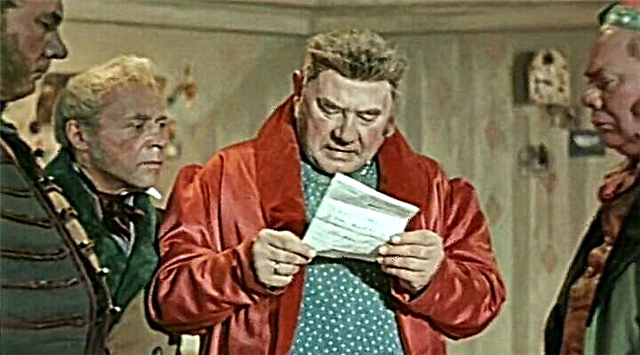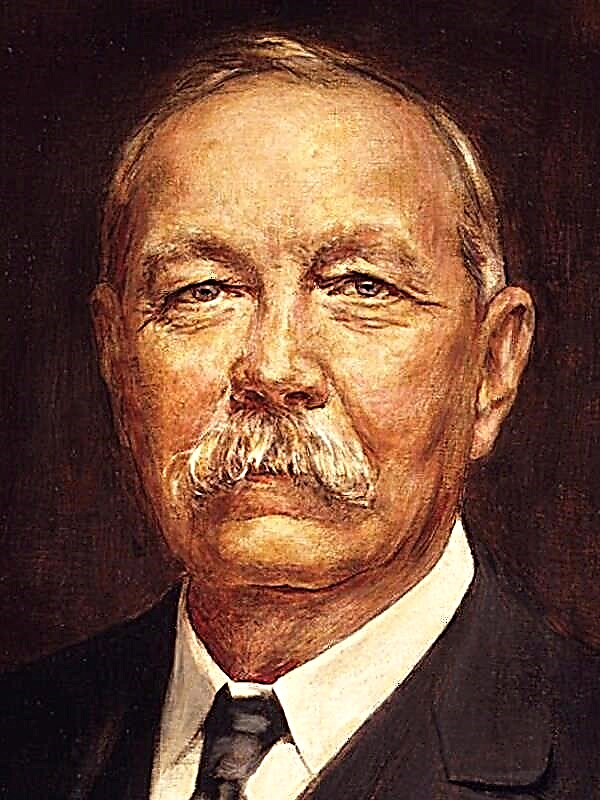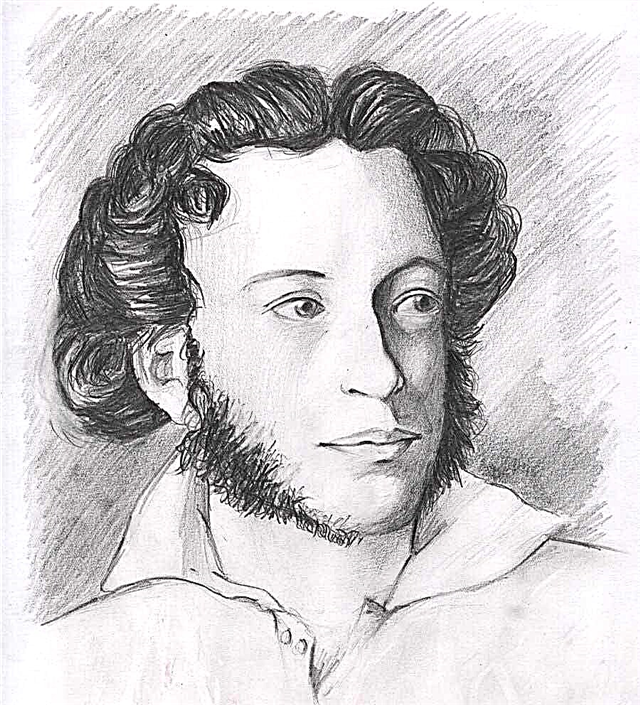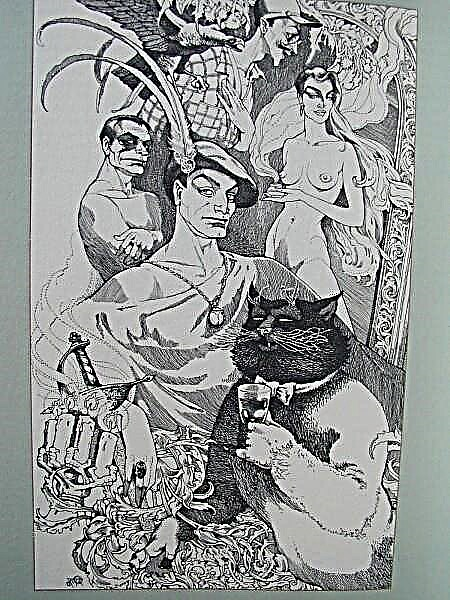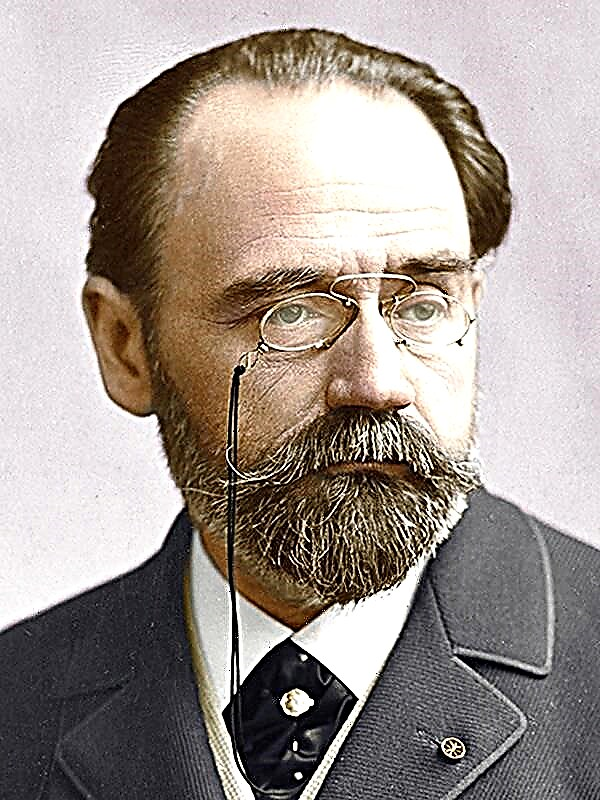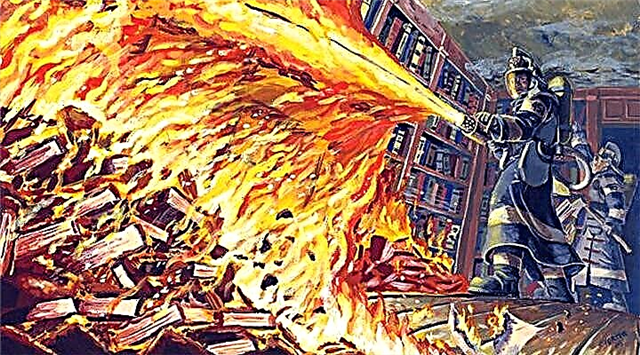Seeking the mercies of Loreta, the young wife of the castle's ruler, old Valentin, Francion, breaking into the castle under the guise of a pilgrim, plays a cruel joke with Valentine. That night, thanks to Francion, incredible events take place in the castle: Loreta has a good time with the thief, mistaking him for Francion, the other thief hangs on the rope ladder all night, the duped husband is tied to a tree, the maid Catherine turns out to be a man, and Francion himself smashes his head and barely Don't sink in a tub of water. After this adventure, staying overnight in a village tavern, Francion meets with the old stepbrother Agatha, with whom he, as it turns out, is well acquainted, and the Burgundian nobleman. Agatha talks about the adventures of Loreta, and at the same time about his own, no less entertaining. Francion accepts the invitation of a courteous nobleman and, having arrived at his rich castle, at the request of the owner, who was imbued with great sympathy for him, tells his story.
Francion is the son of a nobleman from Brittany, a noble and noble family, who faithfully served his sovereign in the battlefield, but who received neither awards nor honors. A considerable part of his already small fortune was stirred up by the judge-hookers in a protracted inheritance lawsuit. Francion grew up like a peasant boy, but already in his childhood "contempt for low deeds and stupid speeches" appeared in him. Having heard about universities and schools, he dreamed of getting there in order to “enjoy a pleasant society,” and his father sent him to a Paris school. He did not find any pleasant company there, in addition, mentors pocketed most of the money for maintenance, and the schoolchildren were fed “only in sight”. Young Francion did not burden himself with classes too much, but he was always “one of the most learned in the class”, and even read a bunch of chivalric novels. And how was it not to prefer reading the nonsense that ignorant educators stuffed with schoolchildren, who had never read anything in their entire lives except comments on classical authors. And the most learned of them, like the cool mentor Francion Hortensius (who remade his name in Latin), were even worse. Hortensius, who considered himself one of the most outstanding minds, did not have a single thought of his own, could not utter a single phrase in good French, and even spoke in love with a set of ridiculous quotes specially learned for the occasion.
When Francion completed his main course at the school of philosophy, his father took him home to Brittany and almost identified him in the legal part, forgetting his hatred of the judiciary. But after the death of his father, Francion received permission to return to Paris and "learn noble pursuits." Having settled in the university quarter, he began to take lessons from the “lute player, swordsman and dancer”, and devoted all his free time to reading and in a short time gained considerable scholarship. Poverty was his greatest misfortune, he dressed so poorly that no one recognized the nobleman in him, so he did not even dare to wear swords and suffered many insults daily. Even those who knew about his origin, disdained to keep acquaintance with him. Having completely lost the hope for a life that had once been pictured to him in dreams, Francion would have fallen into an abyss of despair if he had not engaged in poetry, although his first poems "gave away a scholarly spirit and did not shine with either gloss or sanity." Through a bookseller, he became acquainted with Parisian poets and their writings and found that there was not a single major talent among them. All of them were poor, because the poet’s craft does not bring money, and a rich man does not take up a pen, and everyone was distinguished by foolishness, inconstancy and unbearable conceit. Francion, naturally sharp-witted, quickly learned the rules of versification and even tried to break into the court poets or enlist the patronage of a great nobleman, but nothing came of it. And then fortune turned to face Francion: his mother sent him a considerable amount of money. He immediately dressed like a courtier, and was finally able to introduce himself to the beautiful Diana, whom he had been in love with for a long time. However, Diana preferred to him an empty dandy, lute player Melibey, and Francion's love faded. After her, he loved many more and chased after all the beauties in a row, but could not give his heart to any one, because he did not find a woman "worthy of perfect love."
Having got a luxurious dress, Francion made many acquaintances among young people and founded a company of “enemies of stupidity and ignorance” under the name of “The Retained and Generous”. They made leprosy, which all Paris spoke of, and “smashed the vice not only with the tip of their tongues”, but over time the young people settled down, the brotherhood broke up, and Francion turned to philosophical thoughts about the nature of man and again began to think about finding someone - Someone who would strengthen his position. But fate did not send him an arrogant patron, but rather a friend in the person of the wealthy nobleman Clerant, who had heard about the wit of Francion and had long dreamed of meeting him. Clerant offered him a “decent reward”, and Francion was finally able to show off in luxurious outfits on a magnificent horse. He took revenge on those who had previously shown contempt for him, and his stick taught upstarts that in order to be called a nobleman, one must "not allow anything vile in his actions." Francion became an attorney in all matters of Clerant, who, having fallen in favor, introduced Francion to the court. Francion earned the favor of the King and Prince Protogen. And now a new hobby - Loretta - brought him to Burgundy.
This completes his story, Francion, and it turns out that his owner is the same Remon, who once stole his money from him, and about which Francion spoke very unflatteringly. Remon comes out, slamming the door in anger. Two days later, the butler informs Francion that he should die by order of Remon. He is dressed in antique clothes and led to judge for the insult inflicted on Remon. The court decides to betray Francion into the hands of the most severe of the ladies, the door opens, and Loreta and Remon appear, who embraces Francion and assures him of eternal friendship. After that, a bacchanalia begins, which lasts a whole week, while Loret almost gets caught up at the crime scene by her fooled husband again.
And Francion is going on a journey to find a woman whose portrait struck his imagination. From her relative, Dorini, one of Remon's friends, Francion learns that Nais is Italian, a widow, prefers French to Italians and is in love with a portrait of a young French nobleman, Floriander, and he has just died from a serious illness.
On the way, Francion, like a wandering knight, does good deeds and finally finds the beautiful Nais in a village famous for its healing waters. Despite the fact that he is not Floriander, he manages to win the favor of the beauty and earn the hatred of her ardent Italian fans, Valery and Ergast. All four, accompanied by lavish suites, go to Italy, and Ergast and Valery, joining forces against a common enemy, lure Francion into a trap: he finds himself in an underground prison of the fortress, and the commandant is led to kill him. Ergast writes Nais a fake letter on behalf of Francion, and she, having lost Francion, understands how much she loved him.
But the commandant of the fortress releases Francion to freedom. In a peasant dress, without servants and without money, Francion is hired to graze sheep in an Italian village. He plays the lute, writes poetry, enjoys true freedom and feels happy like never before. Only “bouts of love fever” and the desire to see her lover interfere with complete bliss, which, however, does not prevent Francion from enjoying the village girls. Peasants consider him a sorcerer, who is known with demons, because he heals the sick and mutters verses. Francion administers the court and parses complicated cases, revealing wisdom akin to Solomon’s; he even trades in potions made with his own hands. Finally, the valet Petronius finds him, and now Francion is already in Rome, again dressed as a nobleman, and also tells Remon and Dorini who have arrived in Rome about their new adventures. Hortensius also appears in Rome, who has not grown any wiser since he was the Francion mentor. Everyone in Rome just talks about Francion and envies Nais. The wedding is already a settled matter, but rivals, Valery and Ergast again intervene. They are accused by the efforts of Francion at the same time as faking money and violating the promise to marry a certain Emilia, whom Francion met on arrival in Rome and, in truth, frivolously looked at her, not ceasing to care for Nais. Nais is offended by treason, she refuses Francion, but his friends reveal the plot, Ergast and Valery admit everything, the court acquits Francion, and Nais forgives. Francion, mindful of the troubles that had happened to him because of Emilia, decides to continue to love only one Nais. Marriage turns him into a man of “sedate and calm disposition”, however, he does not repent of the tricks that he committed in his youth “in order to punish human vices”.


